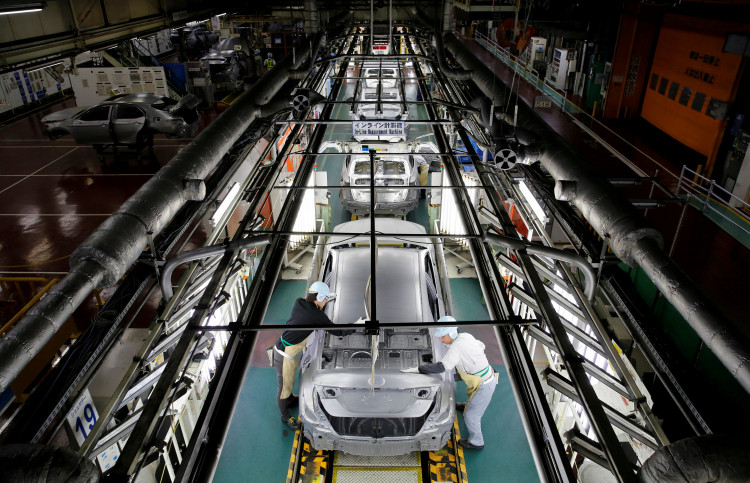Toyota Motor Corp, a Japanese company, announced its partnership with Tsinghua University on Sunday to set up a research institute in China that will study car technology using hydrogen power and other green technologies to ease environmental problems in China.
Toyota's President and Chief Executive Akio Toyoda outlined the initiative during his speech at Tsinghua University. He said that it is part of their efforts to share more technology with China as it seeks to expand its business in the country by beefing up manufacturing capacity and distribution channels.
Toyota said in a statement that the Tsinghua-Toyota Joint Research Institute will conduct research into cars and new technology to solve environmental problems in China, including reducing traffic accidents. He added that the institute will cooperate in research not only related to cars for Chinese consumers but also in research related to active utilization of hydrogen energy that can help solve China's energy problems.
Earlier this month, Toyota announced that they plan to offer free access to nearly 24,000 patents to electric vehicle technologies to carmakers and suppliers globally. The Executive Vice President of the company, Shigeki Terashi, said during an interview with Reuters that Toyota intended to become a tier 2 supplier of hybrid systems and that it had already received inquiries from more than 50 companies.
Recently, a former Chinese top official commented that the country needs to shift to the use of hydrogen fuel-cell technology run vehicles (FCEV). Wan Gang emphasized that hydrogen fuel cells are more advantageous than electric vehicles in terms of driving range and charging time.
Mr. Wan is the former minister of science and technology and he is known as the father of the electric car industry in China. He said that using hydrogen produces zero harmful emissions since it only emits water. He believes that it is crucial in meeting the needs of long-distance buses, taxis, or urban logistics and long-haul transporters.
The data provided by Statista reflected that the combined total purchase of Chinese consumers of EVs and plug-in hybrid electric vehicles reached 579,000 units last year. it is ten times more than the purchases in Japan, Germany, and Norway.
An FCEV is a vehicle that utilizes hydrogen gas as fuel to produce electric energy that will move the vehicle. When hydrogen gas enters the front intake grills, it is supplied to fuel-cell stack wherein it will react to the oxygen component of the air to generate electricity.





